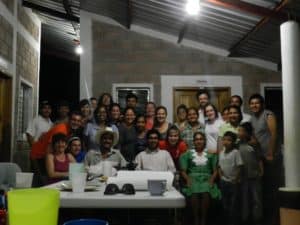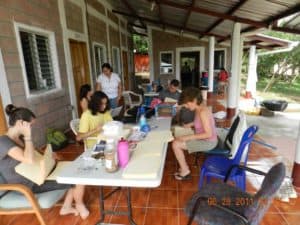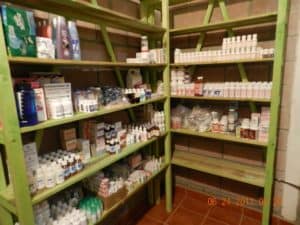The Brown University Brigade came to us from different areas mostly concentrated in the Northeast region of the United States. They were a diverse and energetic group that came together to partner with the Guachipilincito community. During the short time they were here for they accomplished many goals. One of them was establishing a relationship with the community to create a healthy relationship with the newly constructed health center. This included meeting with the local health committee and visiting people’s homes. Another goal was to see patients in surrounding communities and within the health center. Over the week they managed to see over 300 patients. Lastly, the brigade helped celebrate the clinic’s inauguration at the end of the week. All of this was accomplished while having fun and coming together as a team. The Brown brigade helped to continue a long-term relationship with the Guachipilincito community that will last for many years.

A picture of the whole brigade during a birthday celebration of one of the local employees. As you can see it was a great group.


Reflections from brigade members:
“Thanks all for a very successful Brigade and a momentous launch of the Guachi clinic. As we discussed, it was the great team effort that made it all possible.”
“I am very proud to have been a part of what was accomplished during the brief period in Guachi.”
“The list of ‘what got done’ spans from seeing patients, screening, setting up the charting and data system, setting up the pharmacy, orienting the new nurse, providing screening to an outlying community, and opening the clinic for business. Sorry to have missed the grand opening celebration — hope it went well. As for bringing sons along, would put that in the ‘priceless’ category.”


